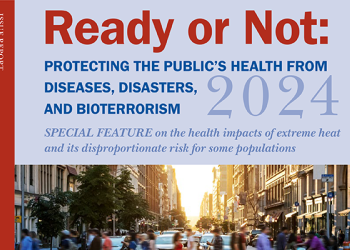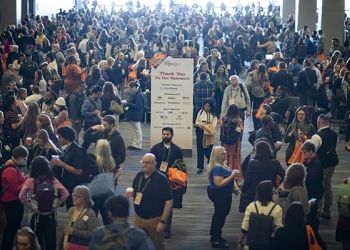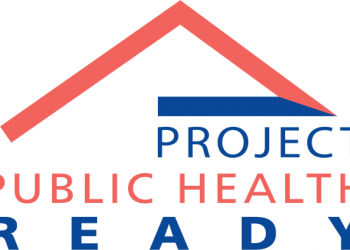Wachusett Medical Reserve Corps (MA)
The 580 volunteers of the Wachusett Medical Reserve Corps (WMRC) serve 22 towns across north Worcester County in Massachusetts. Among the county’s residents, 44 different languages are spoken. The WMRC helps to connect with this diverse community through volunteers who are trained interpreters.
“I’m really, really proud of the work our volunteers do,” said WMRC Unit Vice President PJ Taucer. “Our community is so diverse. We need to be able to communicate with them during a disaster. We’re bridging language gaps.”
Taucer is a language coach, and she has recruited students and colleagues to join the WMRC. A core group of 10 volunteers are mostly medical interpreters and include proficiencies in Spanish, Russian, Portuguese, Arabic, and Laos. Volunteer interpreters complete regular MRC trainings and also participate in a refresher on emergency response with a lens on interpreting. When additional language skills are needed outside of the unit’s current capacity, they rely upon a partnership with the Center for Health Impact.
During the COVID-19 response, the unit checked in with senior residents by phone weekly. It utilized interpreters during this mission to confirm that basic needs like food and medication were met.
WMRC, which operates as an independent nonprofit, has been creative with their fundraising and has also been able to translate written materials. For example, the unit distributed 20,000 door hangers with COVID-19 information at locations like senior housing and apartment complexes. It also translated a Healthy Homes booklet into Spanish, which was very well received. The booklet included information like healthy recipes and how to use natural ingredients for cleaning.
“Having materials translated was a huge undertaking but it also met a huge equity need,” said Unit President Judie O’Donnell. “We need to make sure public health education needs are met.”
Outside of language interpretation, the unit is focusing on other ways to meet the unique needs of its community. They’ve had someone with an autistic child present to the unit and this month they are launching a new program on dementia. They have also identified resources for assistance in community with those in the deaf community.
“In New England, we do a lot of public health and emergency preparedness,” said O’Donnell. “We look for ways to teach emergency preparedness in a fun way including hosting Emergency Preparedness Bingo at senior centers and participating in events like National Night Out and the Hardwick Community Fair.”
The unit also just completed a comprehensive community assessment, visiting each town it serves to solicit top issues and identify resources specific to each town.
“This is addressing a need because communities didn’t know what resources were available to them,” said O’Donnell. “We interviewed people in each town to have a better understanding of community needs. This will enable us to concentrate and look for ways to meet those needs.”
The completed assessment is 212 pages and includes 10-12 pages for each community, including resources specific to each town.
“A healthy community is a prepared community, and a prepared community is a healthy community,” said O’Donnell. “We develop projects from that mindset and getting people to buy into that.”
MRC of the Northeast Kingdom (VT)

The Medical Reserve Corps (MRC) of the Northeast Kingdom serves the largest land area and the smallest population in Vermont. The unit consists of about 90 volunteers, of which a majority (60-70%) are non-medical.
Among its missions, the unit supports clinics at farms, with volunteers visiting multiple farms in a day to provide vaccinations including Tdap, COVID, and flu, to migrant farm workers. One volunteer, a retired physician who is also a famer, has been able to use his Spanish-speaking skills to connect with community members.
“This group enjoys having a physician present,” said Unit Coordinator Helen Wilson. “He helps them get comfortable with having the vaccine. On a more personal level, he understands where they’re coming from.”
Vaccinations are done in partnership with the University of Vermont’s extension program, Bridges to Health.
“This program serves a population that the health department may not have access to otherwise,” said Becky Petelle, Emergency Preparedness Specialist with the Vermont Department of Health, Newport and St. Johnsbury. “The program provides healthy living information, flu shots each fall, and basic stop the bleed and first aid information.”









